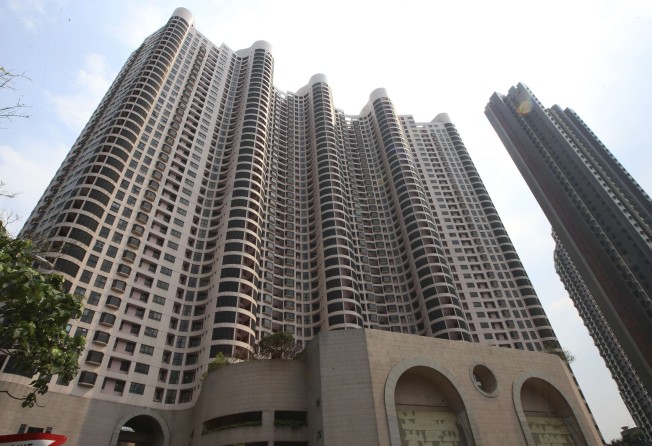Dangers of a bubble in Hong Kong’s property market, authors of UBS Global Real Estate Bubble Index report warn
Global investment bank says the city has wondered into ‘risky territory’ as a result of massive prices rises over years, while price-to-income ratios are near unsustainable levels

Is a bubble forming in Hong Kong’s real estate sector? Many in the sector would say no, thanks to a raft of cooling measures – and directives from Hong Kong’ s de facto central bank, the Hong Kong Monetary Authority (HKMA), to banks to restrict lending – that have halted runaway prices.
However, global investment bank UBS says Hong Kong is in “risky territory” in its report released last week that raised eyebrows as property prices have been sluggish since dramatic falls began in late 2014.
The sector has been showing signs of life as developers have started to bypasss the HKMA by offering up to 90 per cent mortgage loans – and sometimes a second mortgage. Depending on the price, Hong Kong banks are only able to offer up to a 60 per cent loan on the value of a property.
Matthias Holzhey and Maciej Skoczek, the authors of the UBS report, suggest that prices in cities such as Hong Kong that are at risk of a real estate bubble, have risen more than 50 per cent over the past few years.
This means that Hong Kong is in “bubble-risk” territory, according to the UBS Global Real Estate Bubble Index, despite price falls over the past year. After prices peaked in mid-2014 in Hong Kong, they have fallen as much as 10 per cent.
The UBS report warns that the price-to-income ratio has hit record highs, and nearing unsustainable levels. “This [10 per cent drop in prices] appears modest, considering that from 2003 to 2015, the price level [had] tripled,” Holzhey and Skoczek say. “The UBS Global Real Estate Bubble Index score for Hong Kong has decreased significantly, but is still in bubble-risk territory.”
They add that real incomes have virtually stagnated in Hong Kong for years. As a consequence, the affordability of housing is the lowest among the cities considered, and the average living space per person amounts to only 151 sq ft.
“The recent price decrease has brought only minor relief, as buying a [646 sq ft] flat costs more than 18 years’ income,” the authors add. “However, affordability should improve somewhat as we expect further downward pressure on residential property prices.”
The negative outlook is a consequence of supply growth and weak demand. Construction activity in Hong Kong points to the strongest increase of the housing stock since 2004, while lacklustre economic growth is expected to keep local demand subdued, the report says.
Moreover, growth uncertainty in the region, low rental yields and high stamp duties imposed on property transactions for foreigners discourage international capital flows into the housing market. Then there is the question of an interest rate rise in the United States.
Analysts predict that the US Federal Reserve will increase the cost of borrowing in December, which would mean higher mortgage payments for Hong Kong homeowners – especially those who have been tempted by offers from developers.
Not all property experts in Hong Kong agree with the report. Koh Keng-shing, chief executive and founder of property agency Landscope-Christie’s, disputes the conclusion that the local property market is at risk of forming a bubble.
“Luxury property prices are in a state of consolidation and rentals for such properties are softening,” Koh says. “A number of people are holding back from buying.
“They would rather look at new projects coming onto the market with all the incentives offered by the developers, while the secondary market will see a slide in prices in the near term.”
Koh says luxury properties have suffered as a result of a drop in the number of buyers from mainland China and a reduction in expatriates’ perks offered by financial institutions. Bankers’ rental budgets have shrunk, leading to falls in luxury home prices.
Investment group CLSA predicts that Hong Kong home prices will drop 7 per cent this year to absorb the city’s rising home supply.
And at the group’s investor forum held last week, Nicole Wong, regional head of property research at CLSA, said the decline would continue in 2017, with an additional 7 per cent decrease, a necessary response to the “slow-motion train wreck” of the property market.